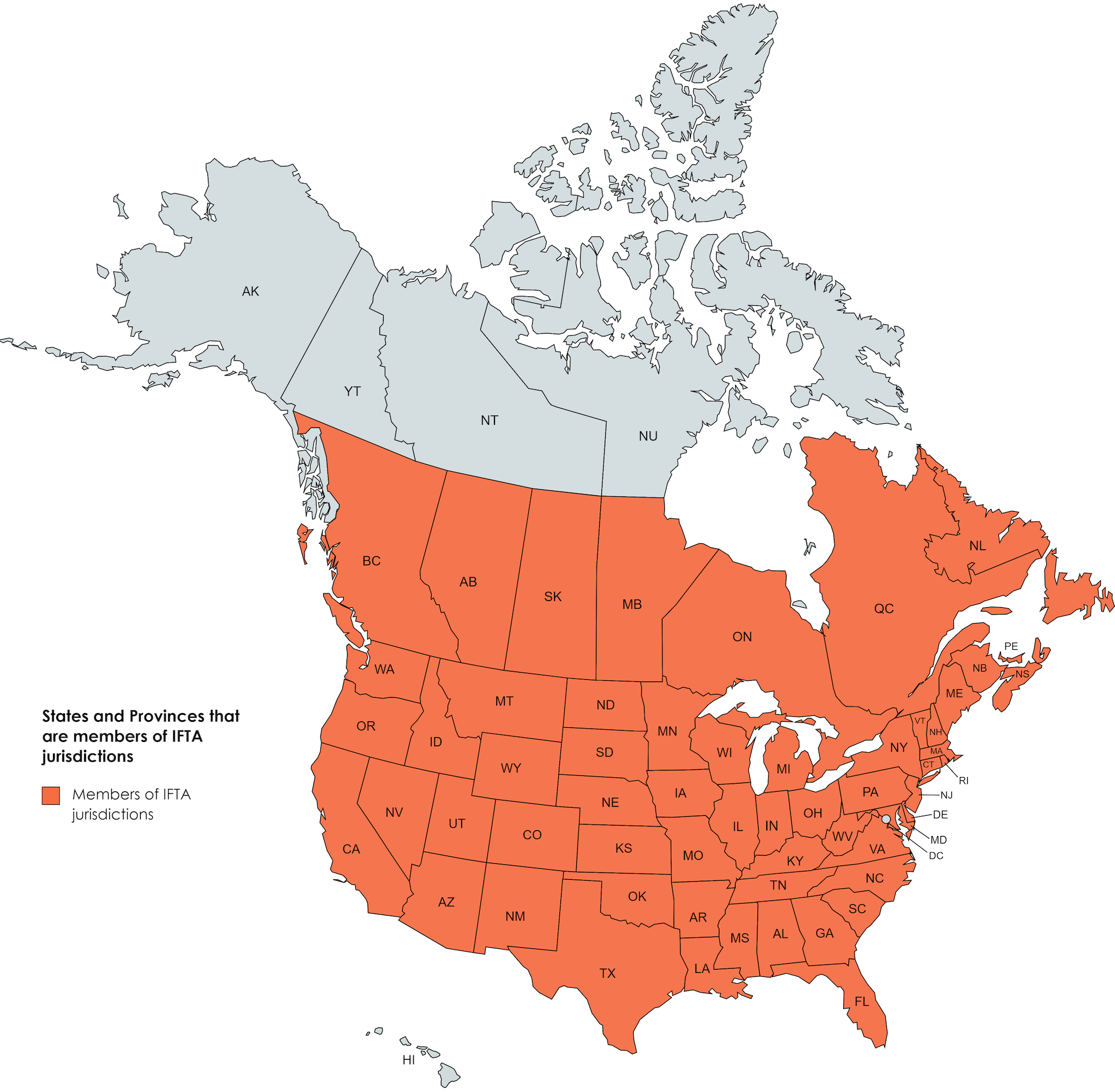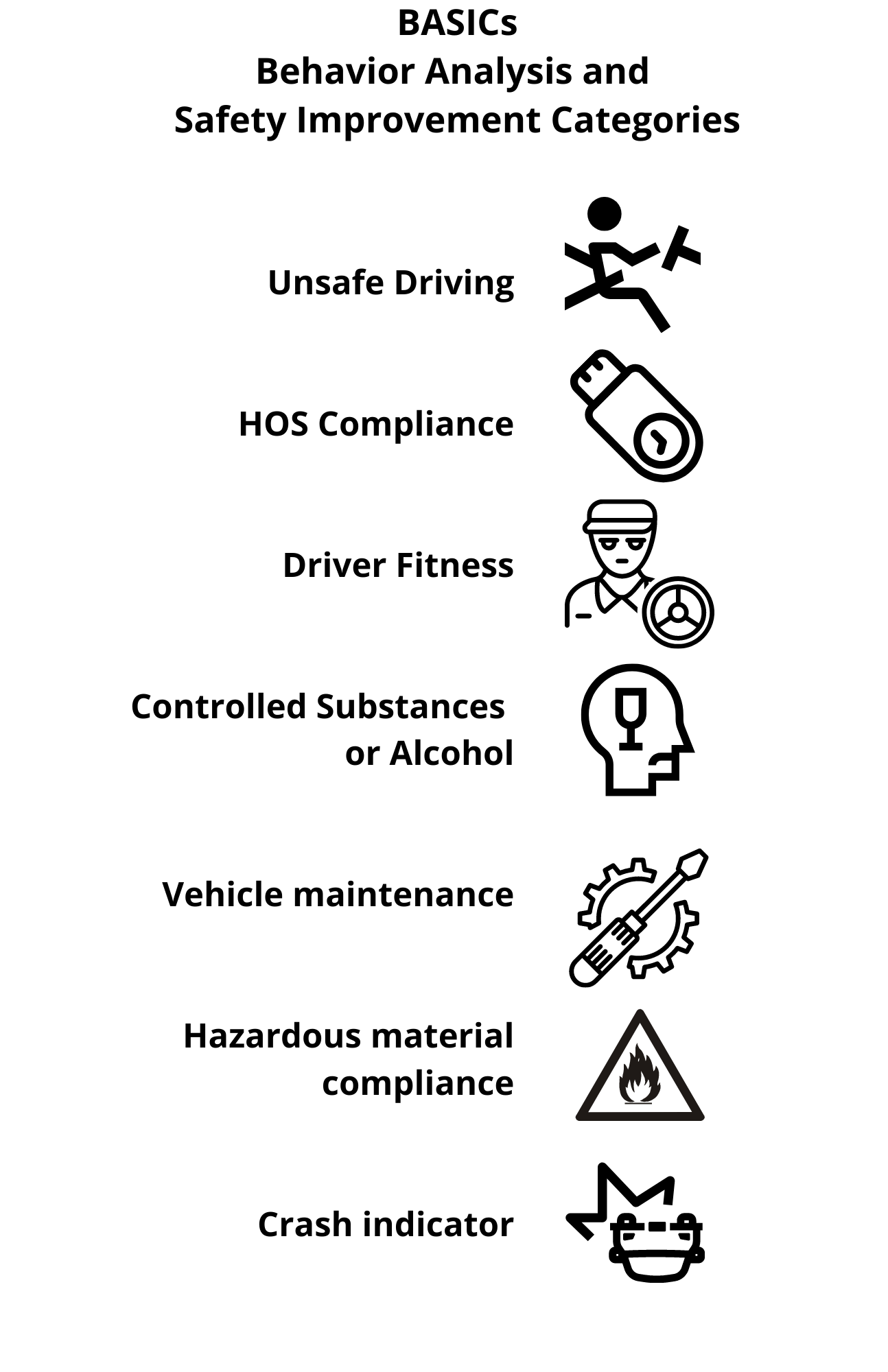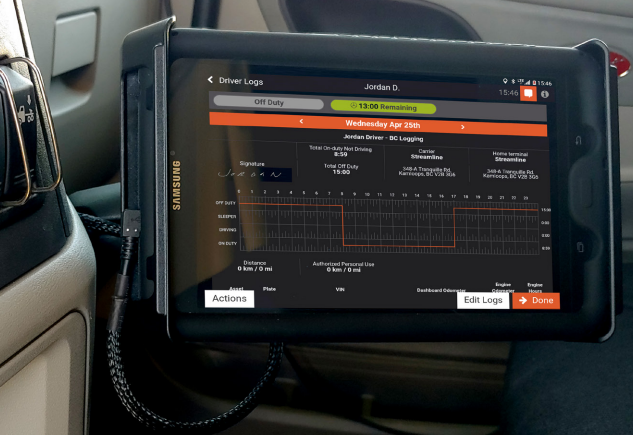What a Fleet Manager Should Know About Fleet Compliance
Trucking as a business can be very challenging. A few reasons are maintaining a fleet compliant and identifying what regulations have to be followed. Every country, state, territory and province has its own set of rules. In this blog, we share some key information and links that should help you understand the basics of fleet compliance.

What is Fleet Compliance?
In a nutshell, a fleet is compliant when all the Federal Motor Carrier Safety Administration (FMCSA), Department of Transportation (DOT) and/or Transport Canada (TS) compliance requirements are met. Local transportation policies and regulations also need to be followed. If a business chooses to overlook compliance, then fines and increased administrative costs can drag the business down and negatively impact your reputation.
Most compliance regulations are country-specific but there are some similarities.
What does Fleet Compliance Include?
USA Fleet Compliance
To be compliant in the USA, the Federal Motor Carrier Safety Administration (FMCSA) (the Department of Transportation (DOT) enforcement branch) regulations have to be followed. All commercial motor vehicle companies and operators are subject to DOT compliance regulations.
The FMCSA requires fleet managers to follow five main types of compliance:
- Hours of Service (HOS) Compliance
- Driver Vehicle Inspection Reports
- IFTA Compliance
- CSA Score
- Pre-employment checks, continuous random drug and alcoholic testings and Federal Drug & Alcohol Testing Regulations
HOS Compliance
Hours Of Service regulations have been created to decrease the number of accidents caused by driver fatigue. Drivers are required by law to use FMCSA-approved electronic logging devices (ELDs) to follow the regulations and have evidence that the number of hours driven stays within the HOS regulation limits.
You can read more about the USA Hours of Services regulations here.
Driver Vehicle Inspection Reports
A Driver Vehicle Inspection Report is a formal record confirming that a driver has completed a daily inspection on a vehicle. It is a documented list of inspected items on a vehicle, and it can be requested by an authorized inspector or a law enforcement agency. If truck drivers fail to provide the DVIR when requested by an authorized inspection body, they can be fined and/or refused entry into the USA or Canada.
The DVIR’s purpose is to prevent defective commercial vehicles from operating on the road to minimize the chances of an accident. You can read more about the Driver Vehicle Inspection Report here.
International Fuel Tax Agreement (IFTA)
IFTA is the agreement between the Canadian provinces and lowers 48 American states that allows inter-jurisdictional carriers to report and pay taxes to a single jurisdiction. Any commercial vehicle that is used for business, or travels in more than one jurisdiction, and has three or more axles and/or a total registered gross vehicle weight of more than 11,797 kg (26,000 pounds) has to be registered for IFTA in their province/state of vehicle records. You can read more about IFTA here.
CSA Score
Compliance, Safety, Accountability (CSA) score is an FMCSA safety initiative that began in 2010. The CSA measurement process quantifies and rates driver and carrier safety performance in seven categories: unsafe driving, HOS compliance, driver fitness, controlled substances or alcohol, vehicle maintenance, hazardous material compliance, crash indicator. The seven categories are also called BASICs (Behavioral Analysis and Safety Improvement Categories). More information about CSA scores can be found here.
Pre-employment Checks, Continuous Random Drug and Alcohol Testing and Federal Drug & Alcohol Testing Regulations
Employees who drive commercial trucks and buses that require a commercial driver’s license (CDL) are subject to drug and alcohol testing. CDL drivers are subject to the following types of tests: pre-employment, post-accident, random testing, reasonable suspicion, return-to-duty, and follow-up testing. You can read more about Federal Drug & Alcohol Testing Regulations here.
ELD Compliance
In order to prepare Hours-of-service records of duty status (RODS), most commercial drivers need to use electronic logging devices. Canadian and American ELD rules differ and each country has its own set of exceptions. To get familiar with the regulations and with the ELD mandate exemptions visit ELD – FAQ and General Information about the ELD Rule (FMCSA).
Fleet Compliance in Canada
Transport Canada (TC) is a Canadian federal institution that works on promoting safe, secure, efficient and environmentally responsible transportation. The federal government and TC’s Motor Carrier Division have authority over extra-provincial (federally regulated) motor carriers and commercial vehicle drivers. Each province and territory govern the operations of its own commercial motor vehicles (CMV) and motor coaches. Several key fleet compliance regulations are overseen by TC’s Motor Carrier Division:
- Motor Carrier Safety Fitness Certificate Regulations – requires extra-provincial CMV to obtain a safety fitness certificate before they may operate on Canadian highways.
- Commercial Vehicle Drivers Hours of Service Regulations
A Driver Vehicle Inspection Report is a legal requirement in the USA; there is no such legal requirement over the commercial vehicles in Canada, however, the National Safety Code (NSC) Standard 13 states the responsibility of maintaining the safe operation of commercial vehicles (CV). To learn more about Transport Canada’s Motor Carrier Division read here.
Consequences of Being Non-Compliant
If a business chooses to overlook compliance, penalties and fines will follow. Penalties incurred by having a non-compliant fleet can cost a fortune and slow down business administrative work. When a driver is found in violation of HOS or ELD regulations, they can be forced out of service or the carrier’s safety score can be affected. Additionally, the business won’t be able to take advantage of any incentives the government offers for compliant businesses.
Fleet Compliance Solutions
Telematics, dashcams and fleet management systems have been game-changing in the field. They help by automating some safety and compliance checks and help simplify the way fleet managers get driver and vehicle reports, files and other compliance documents. One of the best telematics solutions for maintaining fleet compliance are Electronic Logging Devices. FMCSA and Transport Canada certified ELDs help keep fleets compliant with HOS and DVIR regulations. Some of the more advanced ELDs can help provide IFTA and advanced safety and maintenance reporting that can speed up fleet administration work. Dashcam solutions are known to be a great asset to have if the CMV is involved in an accident.
Stay Compliant With the Navistream ELD by Streamline Transportation Technologies
Navistream is an easy-to-use, safe and compliant ELD solution. With Navistream, you will be able to simplify HOS, DVIR and IFTA reporting as well as get advanced and customizable reports regularly scheduled to your email address. Telematics will be able to help you save money and time in the long term. Read this customer success story of using Navistream and watch the video from the BC Forest Safety Council to get to know how our ELD solution can change your life. If you have any questions, please let us know.
Have Questions?
Looking for a solution?
About Streamline Streamline Transportation Technologies Inc., an Arrow Company, is a leading provider of fleet management solutions for the transportation industry. Streamline combines telematics with advanced wireless and vehicle automation technologies to make vehicles safer, cleaner, and more productive. Streamline’s core products include; Navistream™, an ELD and telematics platform, and Degama, a Transportation Management Solution (TMS). The integration of the platforms allows Streamline to offer a complete package of fleet solutions, customizable to any fleet size. For more information, visit stti.com.
At Streamline, we constantly increase our level of expertise to provide our customers with the most reliable information, however, the information on this page is presented for informational purposes only and should not be relied on as legal advice. Please, contact your local DOT department for questions Streamline is unable to answer.
References:
https://www.fmcsa.dot.gov/regulations/title49/section/396.11
https://www.fin.gov.on.ca/en/tax/ifta/




